
Aug 11
1872 Birth: Shidehara Kijuro: prominent pre-World War II Japanese diplomat and the 44th Prime Minister of Japan from 9 October 1945 to 22 May 1946. He was a leading proponent of pacifism in Japan before and after World War II.
1882 Birth: Rodolfo Graziani: Italian field marshal; adherent of Mussolini.
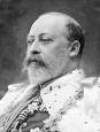
1908 Britain's King Edward VII meets with Kaiser Wilhelm II, to protest the growth of the German navy.
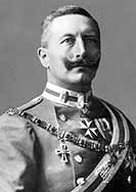
Edward's mastery of psychological and ideological manipulation is most evident in his relation with his pathetic and unstable nephew, Kaiser Wilhelm. Edward made a detailed study of Willy's psychological profile, which he knew to be pervaded by feelings of inferiority and incurable anglophilia. As Flourens noted: "Edward VII made an in-depth study of the defects of Wilhelm II. He counted them as his most precious allies." (Flourens, p. 58)

1915 World War I: List Regiment: Gefreiter Adolf Hitler's 16 Reserve Infantry Regiment continue to occupy a position at Fromelles—pictured above in a drawing by Hitler—on a level field with water channels, willow trees and willow stalks. In the distance toward the enemy lines lies an insignificant wood with barbed wire entanglements. Under the direction of their defense-minded commander, Lieutenant General Gustav Scanzoni von Lichtenfels, the regiment works ceaselessly day and night to further fortify their position at Fromelles while fighting off repeated assaults by the enemy. [For further details, Click here.]
1916 World War I: Various:
Russian Front: The Russian army takes Stanislau, Poland, from the Germans.
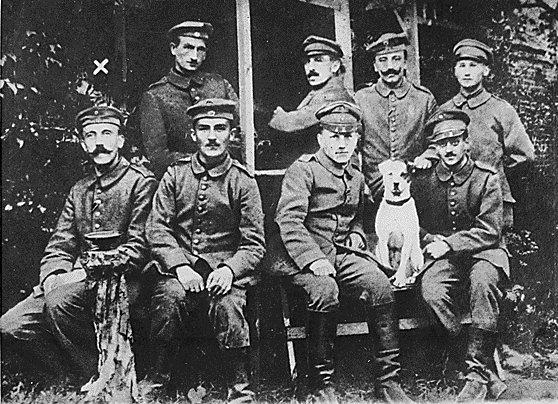
List Regiment: Gefreiter Adolf Hitler endures trench warfare in Flanders (Artois) with 3 Company, 16 Reserve Infantry Regiment. [For further details, Click here.]
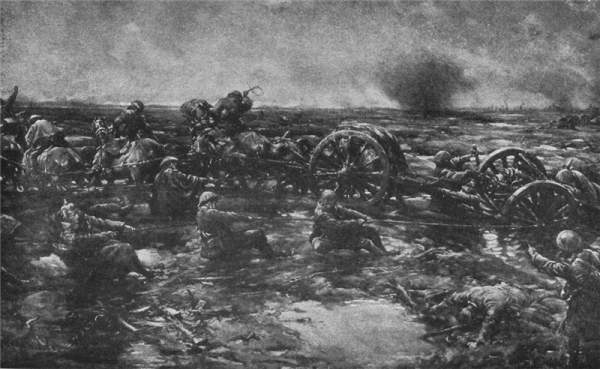
1917 World War I: List Regiment (July 22-September 8): Dispatch Runner Gefreiter Adolf Hitler serves at the front with 3 Company, 16 Bavarian Reserve Infantry Regiment during Phase 2 operations in Flanders. Most of their time in the trenches gas masks are worn, while English bombers attack, and tanks—a new terror witnessed for the very first time by most—attempt to advance over a long front through seas of mud. [For further details, Click here.]
1918 World War I: Various:
The Battle of Amiens ends in an Allied victory. [For further details, Click here]
List Regiment: (July 20-August 12):For further details, Click here.]
1919 Weimar Constitution adopted in Germany
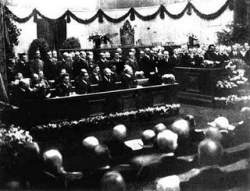
On August 11, 1919, Friedrich Ebert, a member of the Social Democratic Party and the provisional president of the German Reichstag [Parliament], signs a new constitution, known as the Weimar Constitution, into law, officially creating the first parliamentary democracy in Germany.
Even before Germany acknowledged its defeat at the hands of the Allied powers on the battlefields of the First World War, discontent and disorder ruled on the home front, as the exhausted and hunger-plagued German people expressed their frustration and anger with large-scale strikes among factory workers and mutinies within the armed forces. Beginning in 1916, Germany had basically been operating under a military dictatorship, the Supreme Army Command, led by Paul von Hindenburg and Erich Ludendorff. In late October 1918, however, with defeat looming on the horizon, Hindenburg pushed Kaiser Wilhelm II and the German government to form a civil government in order to negotiate an armistice with the Allies. The Kaiser and Reichstag subsequently amended the latter organization's constitution of 1871, effectively creating a parliamentary democracy in which the chancellor of Germany, Prince Max von Baden, was responsible not to Wilhelm but to the Reichstag.
This was not enough, however, to satisfy the far leftist forces within Germany, who capitalized on the chaos of the last days of a losing war effort to lead a general workers' strike that November 7, and call for the establishment of a socialist republic along the lines of the Bolshevik government in Russia. Hoping to pacify the radical socialists, von Baden transferred his powers to Ebert, the leader of Germany's Social Democratic Party (SPD), on November 9. Over the next six months, the Reichstag, led by the SPD, worked to write a new constitution that would solidify Germany's status as a parliamentary democracy. Meanwhile, many within Germany blamed the government for what they saw as the humiliating terms imposed on the country by the victorious Allies in the Treaty of Versailles, particularly the treaty's demands for German war reparations, justified by a clause that placed blame for the war squarely on the shoulders of Germany.
Under vicious attack from both the militarist right and the radical socialist left and identified by both sides with the shame of Versailles, the Weimar government and its constitution—signed into law on August 11, 1919—seemed to have a dim chance of survival. In this atmosphere of confrontation and frustration, exacerbated by poor economic conditions, right wing elements began to take an ever more pervasive hold over the Reichstag. This process, intensified by the worldwide depression that began in 1929, would culminate in the rise to power of Adolf Hitler, who exploited the weakness of the Weimar system to lay the foundations for himself and his National Socialist German Workers' (or Nazi) Party to dissolve the parliamentary government and take absolute control over Germany.(History.com)
1933 Germany: Various:
Unemployment: The Supreme Representative Committee of German Jewry establishes a farm to train unemployed Jews for agricultural employment.
Holocaust: The Hamburg Federation of Grain Merchants, an organization with a large Jewish membership is "Aryanized."

1937 Hjalmar Schacht—one of the few people who dared to shout at Hitler—has a loud argument with Hitler at Obersalzberg. After a closed-door meeting, Schacht tenders his resignation. Hitler, obviously upset, insists he must reconsider. (THP) Note: Much of the economic 'miracle' Germany experienced subsequent to Hitler's seizure of power was generated in Schacht's fertile mind, a fact which Hitler was well aware.
1938 Poland withdraws its permanent delegate from the League of Nations.
1939 Various:
Countdown to World War II: The British Foreign Office learns that Germany will be in a state of complete military readiness on August 15.
Italian Foreign Minister Ciano and Ribbentrop meet in Salzburg.
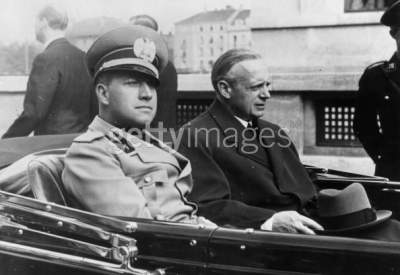
When Ciano asks Ribbentrop whether Germany wants the "Polish Corridor" or Danzig, Ribbentrop replies, "Not that any more. We want war."
Danzig: Karl Burckhardt, Commissioner of the League of Nations in Danzig, is summoned to see Hitler at Berchtesgaden.
Even while he was negotiating a pact with Russia, Hitler displayed total frustration at having failed to reach a non-aggression pact with England, as well as his determination to go through with his original plan, the conquest of European Russia. As Hitler stated during this meeting:
"Everything I undertake is directed against Russia. If the West is too stupid and too blind to comprehend this, I will be forced to reach an understanding with the Russians, turn and strike the West, and then after their defeat turn back against the Soviet Union with my collected strength. I need the Ukraine and with that no one can starve us out as they did in the last war."
Carl Burckhardt was at the time the High Commissioner of the League of Nations for Danzig, a German city separated from Germany by the Treaty of Versailles, and a source of serious conflict between Poland and Germany. Also present at this meeting was Albert Foerster, the Nazi Gauleiter of Danzig. Following his talk with Hitler, Burckhardt traveled to his home in Basel, Switzerland to meet with representatives from England (Roger Makins) and France (Pierre Arnal) and to convey Hitler's message.
Danzig: On this day, Gauleiter Foerster warns his Danzig Nazis to be prepared for anything.
Holocaust: Czech Protectorate: Expulsion of Jews begins:
Czech losses resulting from political persecution and deaths in concentration camps totaled between 36,000 and 55,000, relatively minor losses compared with those of other nations. But the Jewish population of Bohemia and Moravia (118,000 according to the 1930 census) was virtually annihilated. Many Jews emigrated after 1939; more than 70,000 were killed; 8,000 survived at Terezin. Several thousand Jews managed to live in freedom or in hiding throughout the occupation.
1940 Church and Reich:
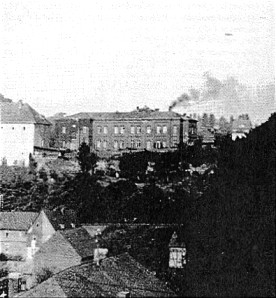
Cardinal Bertram issues an official protest from the German bishops concerning the Euthanasia Decree to the Reich Chancellery. Such destruction of the innocent, he wrote, not only violates the Christian moral law, but offends against the moral sense of the German people and threatens to jeopardize the reputation of Germany in the world. (THP)
1942 World War II, etc.: Various:
War at Sea: The German submarine U-73 attacks a Malta-bound British convoy and sinks HMS Eagle, one of the world's first aircraft carriers.
The convoy completed refueling by dawn on August 11, from the tankers Dingledale and Brown Ranger. Previous Malta convoys had refueled at Malta but now Malta had no oil to spare. The refueling of three cruisers and twenty-six destroyers at sea, under enemy observation and in U-Boat infested waters, was an anxious one; failure could have seriously upset the whole operation. The main coup for the Axis during the day happened early in the morning. The aircraft carrier HMS Eagle was hit by four torpedoes from U-73 (Helmut Rosenbaum) and sank seventy nautical miles south of Cape Salinas. Most of the crew survived (927, 160 lost), rescued by her escorts. The sinking of the Eagle deprived the force of a quarter of its fighter strength. While Eagle was being torpedoed, Furious successfully finished Operation Bellows, flying off thirty-seven much needed Spitfires to Malta.
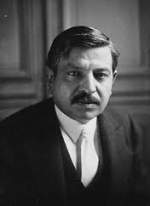
Vichy: Pierre Laval publicly announces "the hour of liberation for France is the hour when Germany wins the war."
War in the Air: Barnes Wallis patents the bouncing bomb:
Barnes Wallis first began to think of producing a bouncing bomb in 1941. He was aware that in the 19th century the British Navy had bounced cannon balls on water to increase their range. He began by carrying out experiments with marbles and a catapult on a tub of water in his garden. Later he tested his prototype at the National Physics Laboratory in Teddington. These tests were successful and the first bouncing bomb was dropped on Chesil Beach in December, 1942. In February, 1943 Barnes Wallis was told to prepare these bouncing bombs for an attack on the Mohne and Eder dams in the Ruhr. The Dambusters Raid took place on 16th May 1943. The cylindrical bombs, which spun at 500 rpm, were dropped by Guy Gibson and the 617 Squadron at a height of 60 feet and at a speed of 240 miles an hour. The rotating bomb skipped over the water and exploded while sinking to the base of the retaining wall of the dam. The bombing produced heavy floods and badly damaged German production in the Ruhr.
To Commandants of Concentration Camps: from SS Brigadefuehrer and General of the Waffen-SS Gluecks:
The Reichsfuehrer SS and Chief of the German Police has ordered that punishment by beating will be executed in concentration camps for women by prisoners under the ordered supervision. In order to coordinate this order the Main Office Chief SS of the Economic Administration Main Office, SS Obergruppenfuehrer and General of the Waffen-SS Pohl, has ordered, effective immediately, that punishment by beating will also be executed by prisoners in concentration camps for men. It is forbidden to have foreign prisoners execute the punishment on German prisoners.
1943 World War II: Various:
Germans begin to evacuate Sicily:
On this day in 1943, German forces begin a six-day evacuation of the Italian island of Sicily, having been beaten back by the Allies, who invaded the island in July.
The Germans had maintained a presence in Sicily since the earliest days of the war. But with the arrival of Gen. George S. Patton and his 7th Army and Gen. Bernard Montgomery and his 8th Army, the Germans could no longer hold their position. The race began for the Strait of Messina, the 2-mile wide body of water that separated Sicily from the Italian mainland. The Germans needed to get out of Sicily and onto the Italian peninsula. While Patton had already reached his goal, Palermo, the Sicilian capital, on July 22 (to a hero's welcome, as the Sicilian people were more than happy to see an end to fascist rule), Montgomery, determined to head off the Germans at Messina, didn't make his goal in time. The German 29th Panzergrenadier Division and the 14th Panzer Corps were brought over from Africa for the sole purpose of slowing the Allies' progress and allowing the bulk of the German forces to get off the island. The delaying tactic succeeded. Despite the heavy bombing of railways leading to Messina, the Germans made it to the strait on August 11.
Over six days and seven nights, the Germans led 39,569 soldiers, 47 tanks, 94 heavy guns, 9,605 vehicles, and more than 2,000 tons of ammunition onto the Italian mainland. (Not to mention the 60,000 Italian soldiers who were also evacuated, in order to elude capture by the Allies.) Although the United States and Britain had succeeded in conquering Sicily, the Germans were now reinforced and heavily supplied, making the race for Rome more problematic. (History.com)
[See: How Did the Pact of Steel Effect Germany and Italy?]Quebec Conference: August 11-24:
Roosevelt and Churchill approve the decision to establish a second front in France at an Allied conference (Quadrant) held in Quebec with Canadian Prime Minister Mackenzie King. Specific plans are made for an Allied landing at Normandy on May 1, 1944. Churchill grudgingly accepts that the Supreme Commander of the invasion should be American.
1944 World War II: Various:
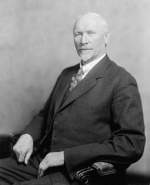
Field Marshal Smuts to Churchill:
[We] can afford to ignore the theaters for which large forces have been kept in the Middle East and assemble whatever we have to strengthen Alexander's move, which may lead to very great results both in the Balkans and in Hitler's European fortress. I would cut off the frills elsewhere in order to improve the alluring chances before this move. A front extending along Northern Italy, the Adriatic, and the route through Trieste to Vienna is one worthy of our concentrated effort...A decisive stage has now been reached in the war, and an all-out offensive on all three main fronts against Germany must lead to the grand finale this summer. If the present tremendous successful offensive can only be maintained the end cannot long be deferred, especially in view of what we now know of conditions inside the German Army...Southern France has ceased to be a theater of real military significance, and our large forces and resources detached for it will have small bearing on the tremendous decisions elsewhere. I even doubt if the enemy will trouble to reinforce it.
Italy: German troops abandon Florence, as Allied troops close in on the historic city.
Japan: The Allies inform Japan that the Imperial authority would be subject to the Supreme Commander of Allied Powers in the occupation force.
Speer and Galland, about to fly back to Berlin, are summoned back to the still raging Fuehrer for a further dressing down: "I want no more planes produced at all. The fighter arm is to be dissolved. Stop aircraft production! Stop it at once, understand? You're always complaining about the shortage of skilled workers, aren't you? Put them into flak production at once. Let all the workers produce antiaircraft guns. Use all the material for that too! Now that's an order. Send Saur to headquarters immediately. A program for flak production must be set up. Tell Saur that too. A program five times what we have now . . . . We'll shift hundreds of thousands of workers into flak production. Every day I read in the foreign press reports (about) how dangerous flak is. They still have some respect for that, but not for our fighters." Note: Hitler will later allow the production of aircraft to proceed after being informed that it is simply not possible to convert all those aircraft plants to flak production. (Speer)
1945 Poland: Pogrom: Amid rumors of kidnappings of children by Jews in Krakow, a crowd of Poles engages in a pogrom, which results in one dead and five wounded victims. [For further information, click here.]
1954 Indochina: A formal peace takes hold, ending more than seven years of fighting between the French and the Communist Vietminh.
1965 USA: Deadly rioting and looting breaks out in the predominantly black Watts section of Los Angeles.
1984 World War III: Reagan jokes about bombing Russia:
On this day in 1984, President Ronald Reagan makes a joking but controversial off-the-cuff remark about bombing Russia while testing a microphone before a scheduled radio address. While warming up for the speech, Reagan said "My fellow Americans, I am pleased to tell you today that I've signed legislation that will outlaw Russia forever. We begin bombing in five minutes." [For further details, Click here]
2003 Afghanistan: NATO takes command of the 5,000-strong peacekeeping force.
Edited by Levi Bookin (Copy editor)
levi.bookin@gmail.com



Click to join 3rdReichStudies



Disclaimer: This site includes diverse and controversial materials--such as excerpts from the writings of racists and anti-Semites--so that its readers can learn the nature and extent of hate and anti-Semitic discourse. It is our sincere belief that only the informed citizen can prevail over the ignorance of Racialist "thought." Far from approving these writings, this site condemns racism in all of its forms and manifestations.
Fair Use Notice: This site may contain copyrighted material the use of which has not always been specifically authorized by the copyright owner. We are making such material available in our efforts to advance understanding of historical, political, human rights, economic, democracy, scientific, environmental, and social justice issues, etc. We believe this constitutes a "fair use" of any such copyrighted material as provided for in section 107 of the US Copyright Law. In accordance with Title 17 U.S.C. Section 107, the material on this site is distributed without profit to those who have expressed a prior interest in receiving the included information for research and educational purposes. If you wish to use copyrighted material from this site for purposes of your own that go beyond 'fair use', you must obtain permission from the copyright owner.
Please Note: The list-owner and moderators of 3rdReichStudies are not responsible for, and do not necessarily approve of, the random ads placed on our pages by our web server. They are, unfortunately, the price one pays for a 'free' website.